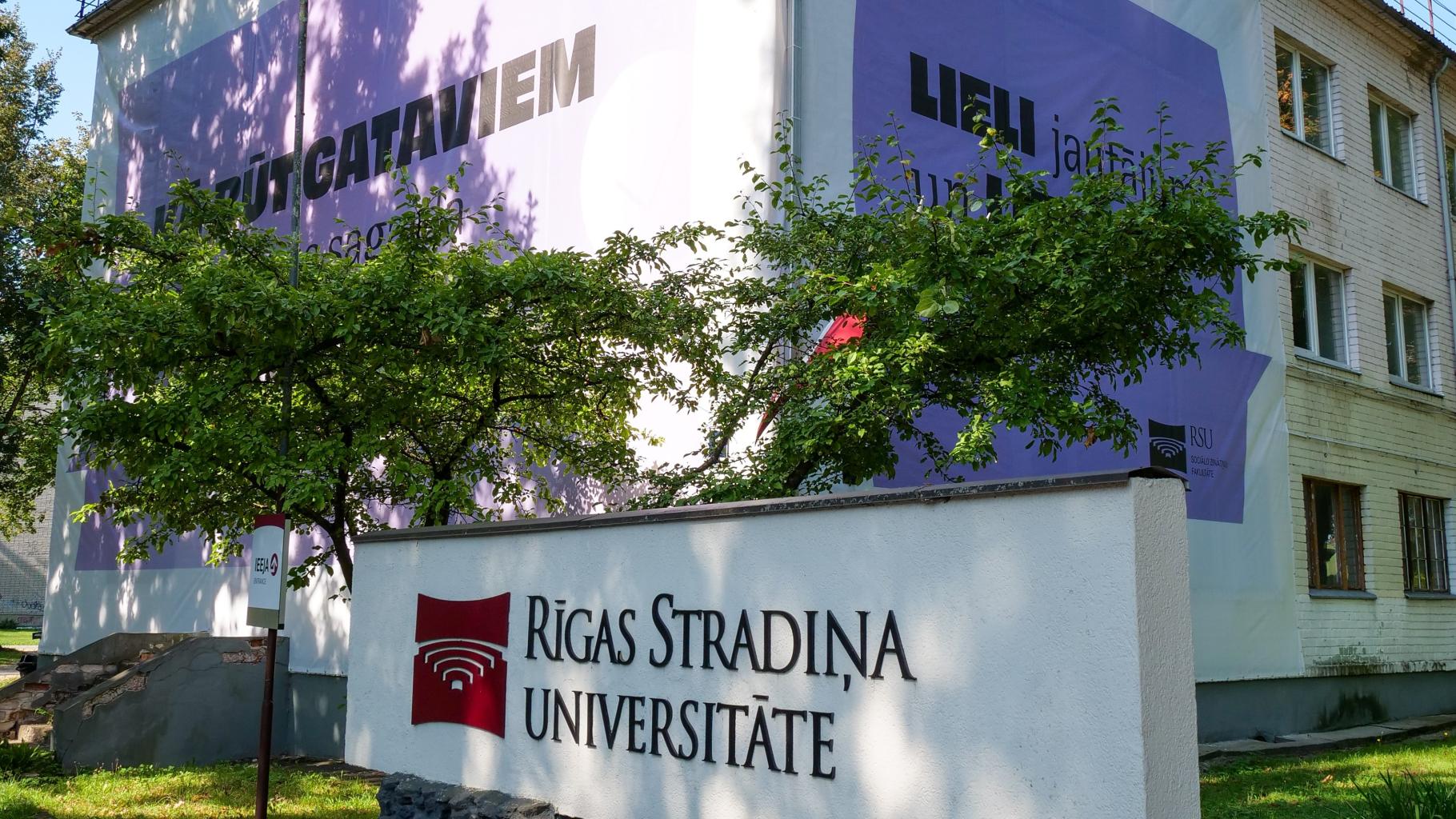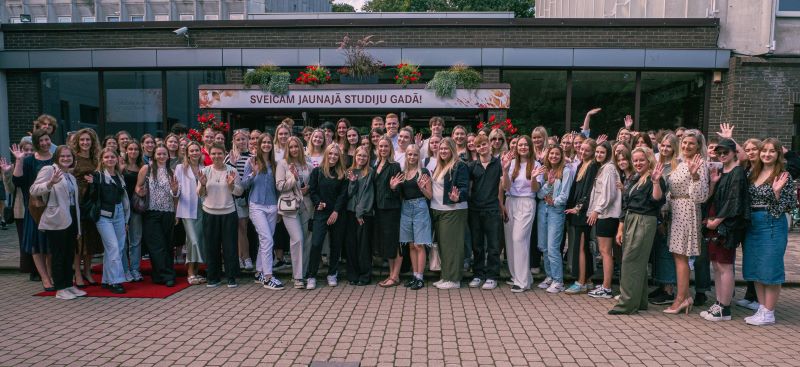RSU Social Sciences Research Centre starts the new academic year with energy
The new academic year has started on a busy note for the Rīga Stradiņš University (RSU) Social Sciences Research Centre. Half a year after its establishment, the Centre has already achieved a lot: the infrastructure and the team are in place, six research groups are working actively, covering communication and media studies, political science, international relations and security, anthropology, sports law, and other areas of social sciences. This strong start to the academic year will allow the Centre to fully prepare for the international evaluation of research institutions expected next year.
‘Since the consolidation began on 6 February, a new team has been formed at the Faculty of Social Sciences, with new heads of study programme groups, new lecturers, researchers and other staff joining the team,’
‘The regulation of the Social Sciences Research Centre has been approved and a clear structure of the Centre has been established, showing how successful vertical and horizontal interaction between colleagues - researchers and lecturers - can be.
 The Faculty of Social Sciences building at 9 Kuldīgas iela in Riga. RSU photo
The Faculty of Social Sciences building at 9 Kuldīgas iela in Riga. RSU photo
We are actively working on strengthening our research infrastructure by purchasing various research tools for interdisciplinary projects, such as an eye-tracking device, setting up a room for focus group discussions, etc. We are also setting up a digital data lab and a computer lab with forensic workstations. We will equip them with the necessary software and technical solutions to analyse digital evidence and large volumes of data using various law enforcement analytical tools.’
New international colleagues
On 1 September, two visiting professors began their collaboration with the RSU Social Sciences Research Centre - Rico Isaacs, Professor of International Politics at the University of Lincoln, and Aija Lulle, Human Geographer, Associate Professor at the University of Eastern Finland. Both visiting professors have already begun to set up their own research teams to develop new research directions in conjunction with the existing strengths of the social sciences at RSU: Isaacs will lead interdisciplinary research on populism, while Lulle will focus on the topic ‘Health, Life Course and Place’.
Work continues in various fields
Immediate plans include strengthening the Social Sciences Data Archive at RSU and raising awareness of the possibilities for storing, analysing and sharing social science research data internationally.
Ieva Puzo, Head of the Centre, stresses that the autumn semester promises to be a busy one:
‘We are continuing work on research that has already begun, and we have plans for new projects.
For example, three Horizon Europe and Digital Europe projects will be launched in the autumn and spring of next year. Our researchers have submitted project applications to the Latvia-Lithuania-Taiwan Scientific Cooperation Support Fund, and several applications are being prepared for the Ukraine-Latvia Cooperation Project Call. We have just received news of an approved project application to the State Research Programme ‘Public Health’. We will be working closely with our healthcare colleagues on this. In November, we will respond to the OSCARS call for research infrastructure initiatives, several interdisciplinary applications are planned for the postdoctoral call, and we are actively preparing for the next cycle of Horizon Europe calls.’
 The Faculty of Social Sciences starting the new academic year on 26 August 2024. Photo from the Faculty archive
The Faculty of Social Sciences starting the new academic year on 26 August 2024. Photo from the Faculty archive
A wide range of Latvian and international events are planned for the coming months. On 10 September, the book Visceral Aesthetics: Affects and Feminist Art in Postsocialism by Lead Researcher Jana Kukaine will be launched, while on 11 September, we invite you to the RSU Research Breakfast ‘Family Without Borders: Challenges of Researchers’ Relatedness and Mobility’, where the focus will be on the findings of project '(Re)moving Ties' led by Assoc. Prof. Klāvs Sedlenieks. In October, two international conferences will be held: on 3 October, the symposium Wild Things on wilderness as a cultural and social practice, organised by Tenured Professor Miķelis Grīviņš and Lead Researcher Jana Kukaine, will take place, while on 10-11 October, researchers from various fields will meet at the international conference The Getaway Conference: Mobilities, Societies, the State and Detoxing. The seminar series ‘Theoretical and Methodological Issues’ will also continue in the autumn semester. Each month it will feature fascinating speakers from different fields of social sciences.
Project nr. KPVIS 5.2.1.1.i.0/2/24/I/CFLA/005 RSU internal and RSU with LASE external consolidation.




